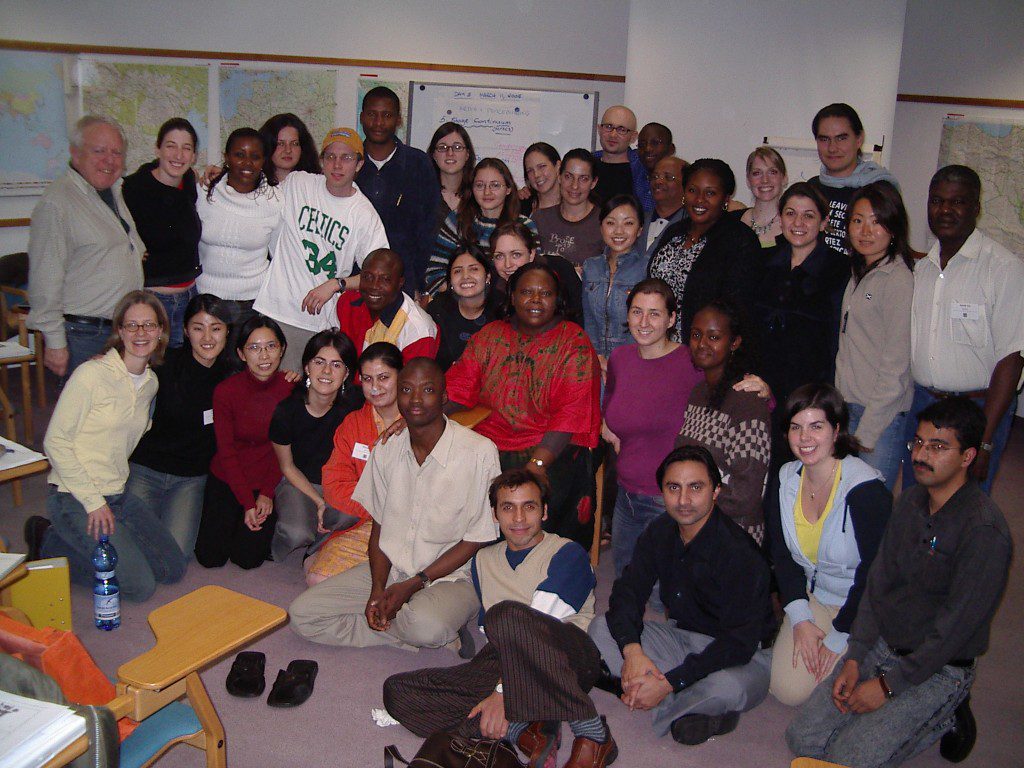 40 people, 22 to 72 years old, from 30 different countries all living in a secluded house sharing one kitchen. Sounds like it could be either a new reality TV show or a recipe for disaster. But far from it; rather, it’s a great way to experience peace. Really.
40 people, 22 to 72 years old, from 30 different countries all living in a secluded house sharing one kitchen. Sounds like it could be either a new reality TV show or a recipe for disaster. But far from it; rather, it’s a great way to experience peace. Really.
This is the format that the European Peace University (EPU), as well as a number of other Peace Studies programs, use to not only teach peace to graduate students, but to also have them live peace… and conflict transformation. Students take courses in a variety of topics and disciplines (peace studies, cross-cultural communication, conflict analysis, peace education, nonviolence, international organizations, etc.) and then have an opportunity to put their lessons into practice around the house. Whether it’s making sure that the kitchen stays clean or that everyone feels safe and respected, conflicts arise regularly, and yet they become opportunities to put into practice what was learned in the classroom. This de facto praxis (Paulo Freire’s term for combining reflection and action) stimulates a powerful way of learning, where concepts such as “direct vs. indirect communication” or “empathy” can be practiced right away. Tools such as reconciliation circles and conflict maps can be directly applied to what is  happening in the house. Most importantly, students have an opportunity to experiment and dialogue with a group of peers who are ultimately interested in creating peace as well.
happening in the house. Most importantly, students have an opportunity to experiment and dialogue with a group of peers who are ultimately interested in creating peace as well.
The field of peace studies and conflict resolution is growing globally, and with it the idea that peace can be taught, learned, researched, analyzed and understood. The European Peace University is based in Stadtschlaining, Austria, midway between Vienna and Graz. The World Peace Academy adopts a similar philosophy and is based in Basel, Switzerland. In a slightly warmer climate, University for Peace is located in Costa Rica and is mandated by the United Nations. While these three programs prone the experiential learning model, there are hundreds of programs worldwide that offer university-level courses in peace studies, conflict resolution and related disciplines.
As a graduate of EPU, it heartens me that even 7 years later, there are close ties amongst my classmates. These have continued both as friendships and as professional relationships. And with more and more graduates in peace and conflict studies globally, this growing web of peace workers can be leveraged to create a more peaceful and sustainable world for all. There is certainly enough war, violence and conflict in the world… time to turn it into an opportunity!

